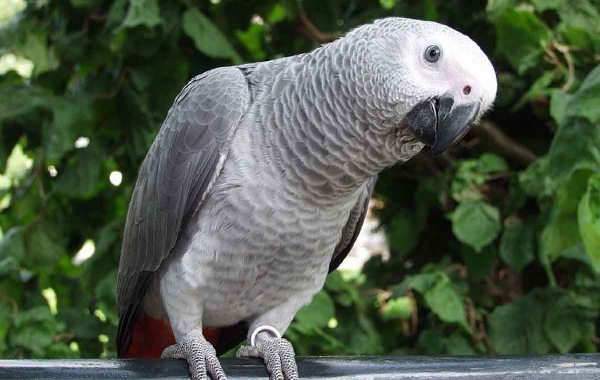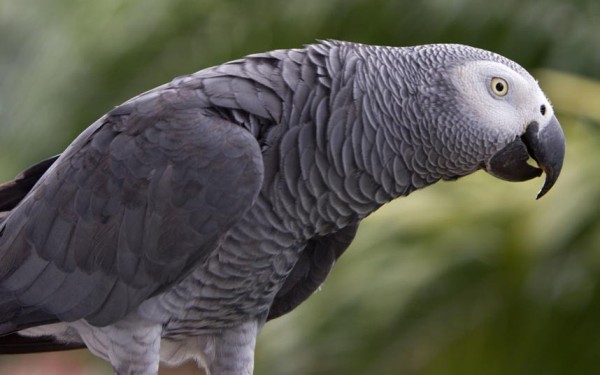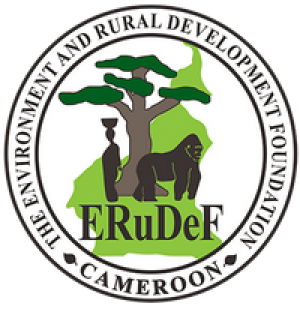The Proposed Mak-Betchou Wildlife Sanctuary in the Lebialem Highland of SW Cameroon is one of the most biologically diverse ecosystems in the Gulf of Guinea (lower Guinea Forest). The highland is home to the African grey parrot (Psittacus erithacus) which is presently under serious threats both from the local communities and business world. In addition to this species, the critically endangered Cross River gorilla, the Nigeria-Cameroon chimpanzee, the African forest elephants, the Drills, and other endangered avian species, are found in this proposed Wildlife Sanctuary. This area has historically been under customary land-use and is currently being supported by the Environment Rural Development Foundation (ERuDeF) for transformation into a protected area.
The last bird (avian) inventory in this area was conducted in 2004-2005 by ERuDeF with support from the Rufford Small Grant. During this survey, it was realised that the Proposed Mak-Betchou area is very rich in avian species with the African grey parrot significantly present.
The socio-economic survey also observed that the African grey parrot was under serious threats from the local communities as it is being hunted in commercial quantities and sold as pets and food in the City markets. Other threats include habitat loss, fragmentation, deforestation and habitat degradation.
[one_half]
 [/one_half][one_half_last]
[/one_half][one_half_last] [/one_half_last]
[/one_half_last]
It is against this backdrop that ERuDeF is seeking financial support in order to create and manage proposed Mak-Betchou Wildlife Sanctuary. This will ensure the protection and conservation of the African grey parrots and other avian species in the area. The rich biodiversity of this area will also be greatly protected as a result of the creation of this site. Also, the project will ensure that the standard of living of the communities around the protected area be improved, so as to make the inhabitants not to be dependent on natural resources solely for survival.
The project has as objectives the following;
Ø Creation of the proposed Mak-Betchou Wildlife Sanctuary,
Ø Development of the management and business plans,
Ø Assessing the status(distribution, condition, etc) of the African grey parrots and other Avian species,
Ø Conduct Socio economic survey in the proposed Mak-Betchou Wildlife Sanctuary,
Ø Create and support collaborative management structures.
To implement this project, over US$ 1,000.000 will be required for the next 3 years. US$ 100,000 will support the development of the management and business plans for the Proposed Mak-Betchou Wildlife Sanctuary. US$ 50,000 will be use in assessing the status (distribution, condition, etc) of the African grey parrots and other avian species. US$ 50,000 will be use to conduct Socio economic survey in the proposed Mak-Betchou Wildlife Sanctuary. US$ 160,000 will be used to Create and support collaborative management structures around the Proposed Mak-Betchou Wildlife Sanctuary environs. Finally US$ 90,000 will be used for the payments of resource persons and the salaries of all staffs directly engaged into the project.
It is important to note that ERuDeF has received some US$ 550,000 from the Rainforest Trust to support the creation of the proposed Mak-Betchou area.
ERuDeF runs several programs which includes but not limited to Great Apes conservation, Agro-forestry, forestry just to mention a few. The Great Apes component is focused on saving the last species of gorillas and chimpanzees across the Lebialem Highlands, in Upper Banyang and Nkingkwa Hills. The work on great apes also extends into the NW, East and South regions of Cameroon to focus on the remaining populations of gorillas and chimpanzees in those regions. Our work on great apes, in the country has led to the creation of the Lebialem Highlands Conservation Complex and the Lebialem-Mone Forest Landscape. Currently, ERuDeF has assisted the government of Cameroon to create the Tofala Hill Wildlife Sanctuary. Besides, ERuDeF is also assisting the government to protect the apes in the proposed Mak-Betchou forest, Nkingkwa Hills and Tofala-Mone Forest Corridor. ERuDeF also assisted the government of Cameroon in the development and validation of the management plan for the Deng Deng National Park in the East Region of Cameroon.
The project that will span for about three years will be carried out by a team of experts from ERuDeF with long years of experience in Ornithology, Protected area creation, management and conservation.
For more information, please go to www.erudef.org
